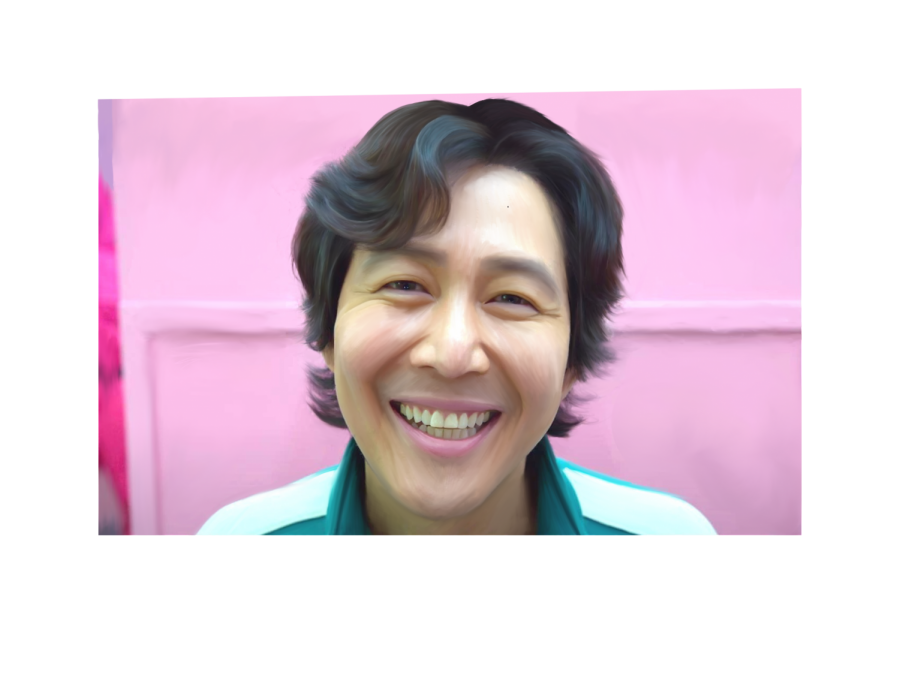“Squid Game” Review
October 13, 2021
Within the first five days of its release, Korean survival drama “Squid Game” reached No. 1 on Netflix in 22 countries and territories. Six days later, Netflix co-CEO Ted Sarandos predicted the show may become Netflix’s biggest success yet at a Los Angeles Code conference.
Written and directed by Hwang Dong-hyuk and running nine episodes for 485 minutes in total, the show follows Seong Gi-hun (Lee Jung-jae), a divorcee and gambling addict who cares for his estranged young daughter. Desperate for money, he agrees to partake in a series of six games to pay off his debt.The games, which are twisted interpretations of popular children’s games, offer a prize of 45.6 billion won in Korean currency (equivalent to about $39 million) to the victor—and the price of death to all other players. Full of bright aesthetics, colorful rooms and exaggerated shapes, the games reflect a childlike dream ina direct contrast to the gray, gloomy streets of Gi-hun’s home in Seoul, South Korea and the gruesomely violent games themselves.
The show somewhat follows a game-show format , weaving together flawed yet likeable characters. The series sets up compelling moral dilemmas, prompting the viewer to ask themselves questions such as ‘Would I be willing to sacrifice a friend’s life to save my own?’
Hwang’s writing explores relationships between the rich and poor, posing a dark and satirical critique of capitalism that is compelling and grounded in reality.”Squid Game” seeks to highlight extremes in every way possible: From dramatic lighting shifts to juxtapositions between small characters and towering sets, the show’s eye-catching imagery furthers the script’s anti-capitalist messaging.
The show was inspired by Korea’s extreme wealth gap; among the 38 countries in the Organization for Economic Cooperation and Development (OECD), South Korea ranks 32nd in economic disparity between rich and poor citizens, according to The Borgen Project.
“I wanted to write a story that was an allegory or fable about modern capitalist society, something that depicts an extreme competition, somewhat like the extreme competition of life,” Hwang said to Variety.
Such powerful social commentary infuses itself throughout the show. As stone-cold pickpocket Kang Sae-byeok (Jung Ho-yeon), who escaped North Korea in hopes of a better life, puts it in the show, she found life in South Korea to be just as desolate.
“Squid Game” is a powerful show of gore, loss and heartbreak, all wrapped in a shiny bow. Yet, throughout the violence and the chaos, one message remains clear: Don’t get too attached to anyone.
































